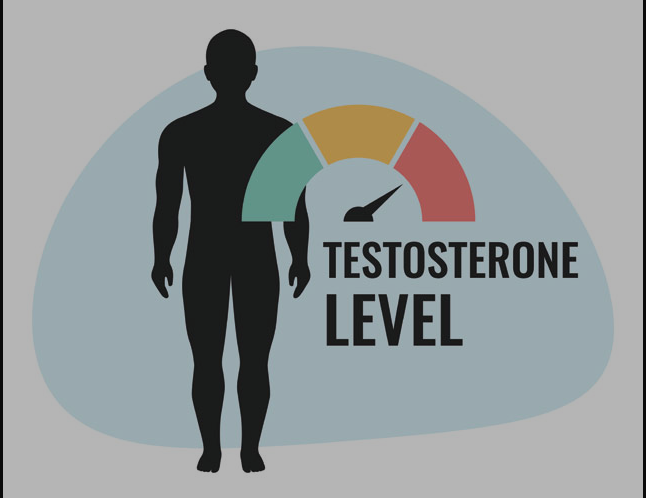Testosterone – aka the male hormone. While it’s often associated with macho traits, testosterone plays a vital role in hormonal balance and overall health. From your mood to metabolism and physique, let’s unpack everything this fascinating hormone stands for in your body and well-being throughout life.
Where is Testosterone Produced?
Testosterone is produced in the testicles. Now you understand why the name is the way it is. Signals are sent from the brain to the pituitary gland; these signals control testosterone production. The pituitary gland then forwards these signals to the testes to produce testosterone. With these signals, the brain controls the amount of testosterone in the body at any given time.
Now, to the big question: How does it affect hormonal balance and health?
Hormonal Balance
Testosterone plays a crucial role in maintaining hormonal balance. Alongside other hormones, it helps regulate various bodily functions. These include mood, energy levels, libido, and even bone density. So, it’s not just about masculine traits; it’s about keeping our bodies ticking like a well-oiled machine.
Muscle and Bone Health
Healthy muscle and bone structures are crucial for overall well-being. Testosterone aids in the maintenance and development of lean muscle mass, allowing you to stay strong and physically capable. Additionally, it helps to preserve bone density, an essential aspect of long-term skeletal health.
While some people may not experience the same degree of muscle mass gain as others due to their lower testosterone levels, its presence remains crucial for maintaining the strength of both muscles and bones throughout life.
Energy and Vitality
Have you ever felt sapped, lazy, and chronically fatigued for days? There are many reasons this may happen, one of which is hormonal imbalance, particularly low testosterone (low T). This hormone plays a vital role in regulating energy metabolism, contributing to increased vitality and overall well-being. Hav
When testosterone levels are balanced, we often experience higher energy levels, improved mood, and a greater sense of vitality. The reverse is the case when you have low T levels. So, you might be amazed how much you can revamp your lifestyle with testosterone replacement therapy, that is, to increase your testosterone levels through therapy. In essence, testosterone is not just about muscle and strength; it’s a key player in boosting energy reserves and helping you feel more alive and vibrant.
Stress Reduction
Believe it or not, testosterone can also help with stress management. It has mood-enhancing properties, which can help keep anxiety and stress at bay. So, when life gets hectic, a little testosterone support can make a world of difference.
Boosting Libido and Sensuality
Now, let’s talk about the fun stuff – libido! Testosterone isn’t solely responsible for our drive, but it does play a significant role. When testosterone levels are in check, it can enhance our sensuality and desire, ensuring we’re not missing out on the pleasures of life.
It’s All About Balance
Balancing testosterone levels is a delicate dance. Too much or too little can lead to various health issues. Here are some tips to keep it in check:
1. Stay Active
Regular exercise, especially strength training, can help maintain healthy testosterone levels. It’s not about becoming a bodybuilder; it’s about keeping your muscles and bones strong.
2. Nutrition Matters
A balanced diet rich in nutrients like zinc and omega-3 fatty acids can support hormone balance. Consider adding foods like nuts, seeds, lean meats, and fatty fish to your plate.
3. Manage Stress
Stress can wreak havoc on your hormones, including testosterone. Incorporate stress management techniques like meditation, yoga, or deep breathing into your daily routine.
4. Prioritize Sleep
A good night’s sleep is essential for hormonal balance. Aim for 7-9 hours of quality shut-eye to keep your hormones in harmony.
5. Consult a Healthcare Professional
Don’t hesitate to consult a healthcare professional if you suspect hormonal imbalances or experience symptoms like low libido, fatigue, or mood swings. They can perform tests and guide you on hormone therapy if needed.
Testosterone Therapy: When Is It Necessary?
Sometimes, despite our best efforts, hormone imbalances persist. In such cases, testosterone replacement therapy may be recommended. This therapy involves carefully monitored doses of testosterone to restore hormonal balance.
A healthcare professional can assess your individual situation and needs to determine the most suitable treatment plan. If you think you may require testosterone replacement therapy, you can visit this site for men to learn more about what this therapy could do for you.
Wrapping Up
So, now you know testosterone is more than just a masculine hormone; it’s a vital player in our overall health and well-being. And hormones are a team; when they work together harmoniously, we can be the best versions of ourselves, which is why hormonal balance is necessary.
Whether you’re hitting the gym for some strength training, indulging in nutrient-rich foods, or simply taking a moment to de-stress, you’re nurturing your body and promoting hormonal harmony. So, here’s to living our best, balanced lives!

